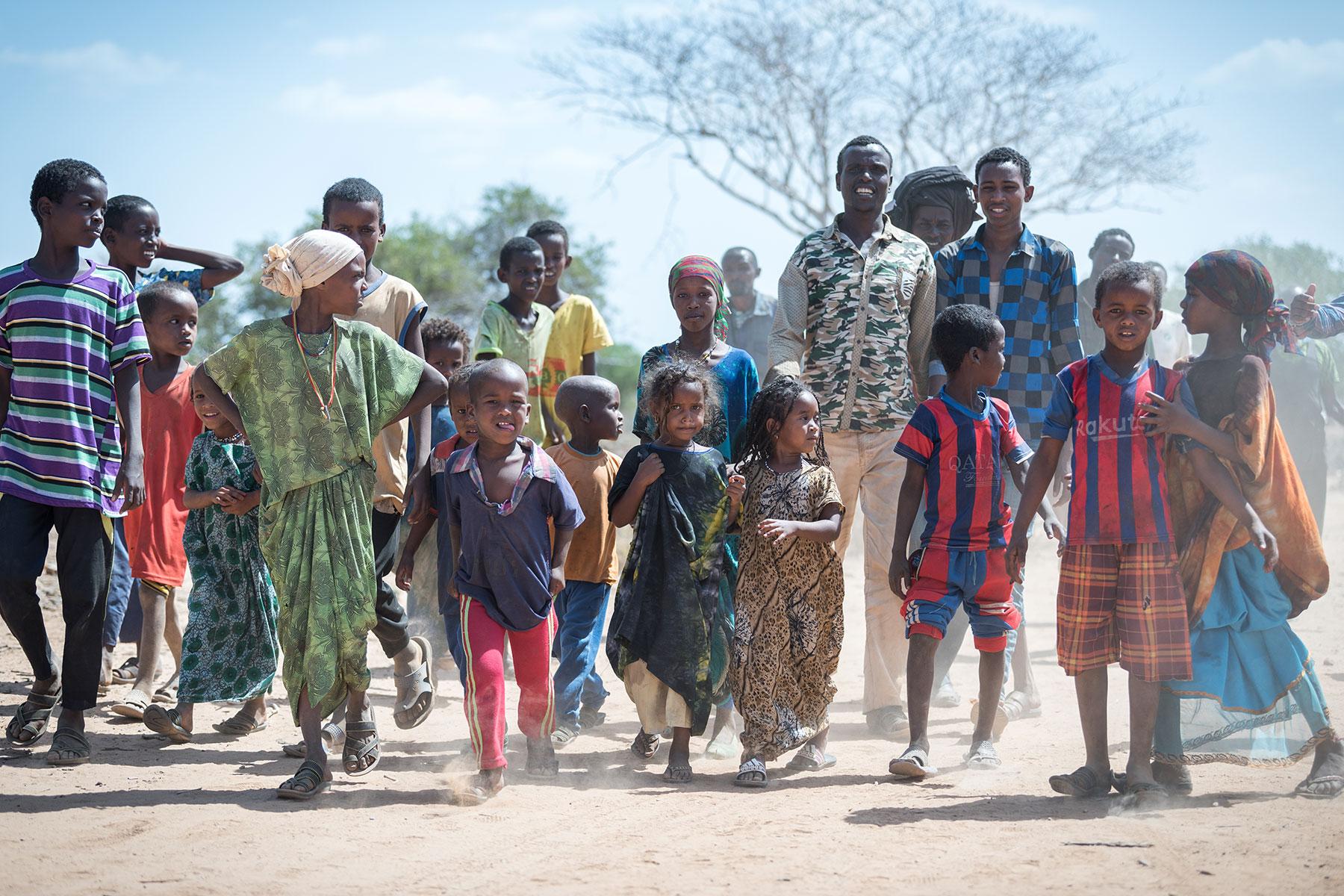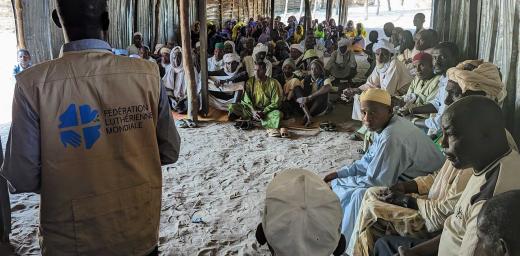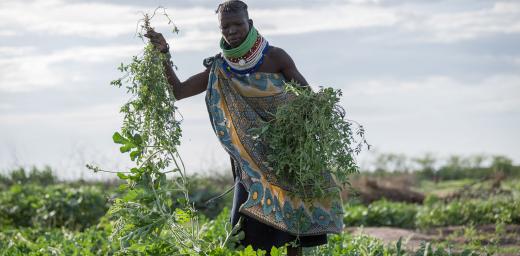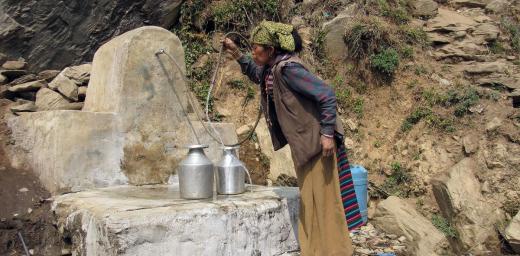World Refugee Day: Every Action Counts

A group of Oromo internally displaced people (IDP) move through the Burka Dare IDP site in Ethiopia. Photo: LWF/ Albin Hillert
Lutheran church leaders advocate for the protection of displaced people
(LWI) - Churches and faith communities need to actively support refugees. Every action counts. This is the call of Lutheran church leaders worldwide on World Refugee Day. “In solidarity with refugees and migrants, we obey our Lord’s call, to welcome and serve them,” says Presiding Bishop Elizabeth Eaton of the Evangelical Lutheran Church in America (USA) who is also LWF Vice-President for North America.
“It impresses me, again and again, to see how poor countries in Africa receive millions of refugees,” adds Heinrich Bedford-Strohm, Bishop of the Evangelical Lutheran Church in Bavaria, Germany. “When I then see how the rich countries of Europe struggle to accommodate a few thousand, I am ashamed of my continent.”
We must not leave fragile populations behind
Every year on June 20th, World Refugee Day raises awareness about the situation of forcibly displaced people. These include refugees, who have crossed a national border to flee war or disaster, and internally displaced people, asylum seekers, stateless persons and returnees.
“It has hardly made the news that there are almost 80 million refugees and IDPs who have had to leave their homes behind,” says Maria Immonen, director of LWF World Service. This is the highest number recorded and has almost doubled from 41 million in 2010.
“The displacement crisis is growing at ever-increasing rates globally and getting worse. We cannot leave these vulnerable, traumatized and fragile populations behind as a global family. Even regarding the spread of COVID-19, these people are not only badly impacted themselves, but need to be included in all national responses globally, to ensure we can contain the spread of the pandemic.”
The displacement crisis is growing at ever-increasing rates globally and getting worse. We cannot leave these vulnerable, traumatized, and fragile populations behind as a global family.
Since its founding in 1947, during the European refugee crisis after World War II, working for refugees and displaced people has been at the core of LWF’s mission. Today, the LWF serves 2.25 million people in 25 countries through its humanitarian and development arm World Service.
Religious communities play “major role”
LWF World Service supports refugees from Venezuela, Myanmar, Syria, and South Sudan, internally displaced people in Iraq and Colombia. The LWF is the largest faith-based implementing partner of the United Nations High Commissioner for Refugees (UNHCR), and provides humanitarian aid to people living in the refugee camps of Kakuma, Dadaab, Northern Uganda, Zaatari and Cox Bazaar, among others.
“Religious leaders, faith-based organizations and faith communities can play a major role in integrating refugees into their host communities, reducing conflicts and supporting those who have lost everything”, says Rev. Dr. Sivin Kit, LWF Program Executive for Public Theology and Interreligious Relations.
“During the current Covid-19 pandemic, the World Health Organization (WHO) has reached out to faith-based organizations such as LWF to share vital information and guidance, which may be more likely to be accepted by faith communities than from other sources. Member churches across the communion have continued to provide pastoral and spiritual support during emergencies and advocate for the needs of vulnerable populations.”





